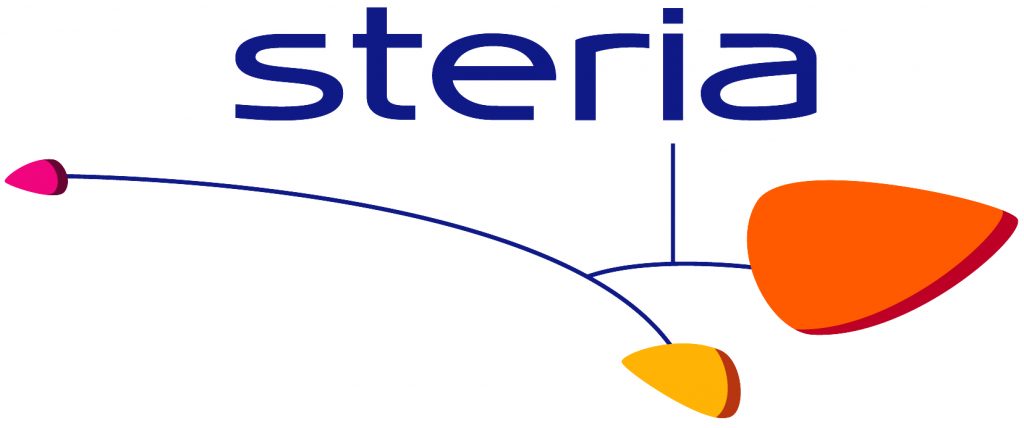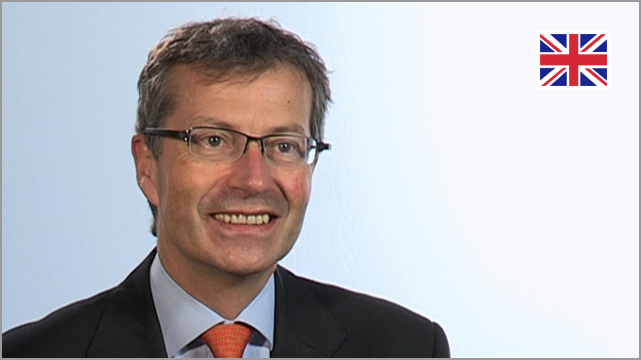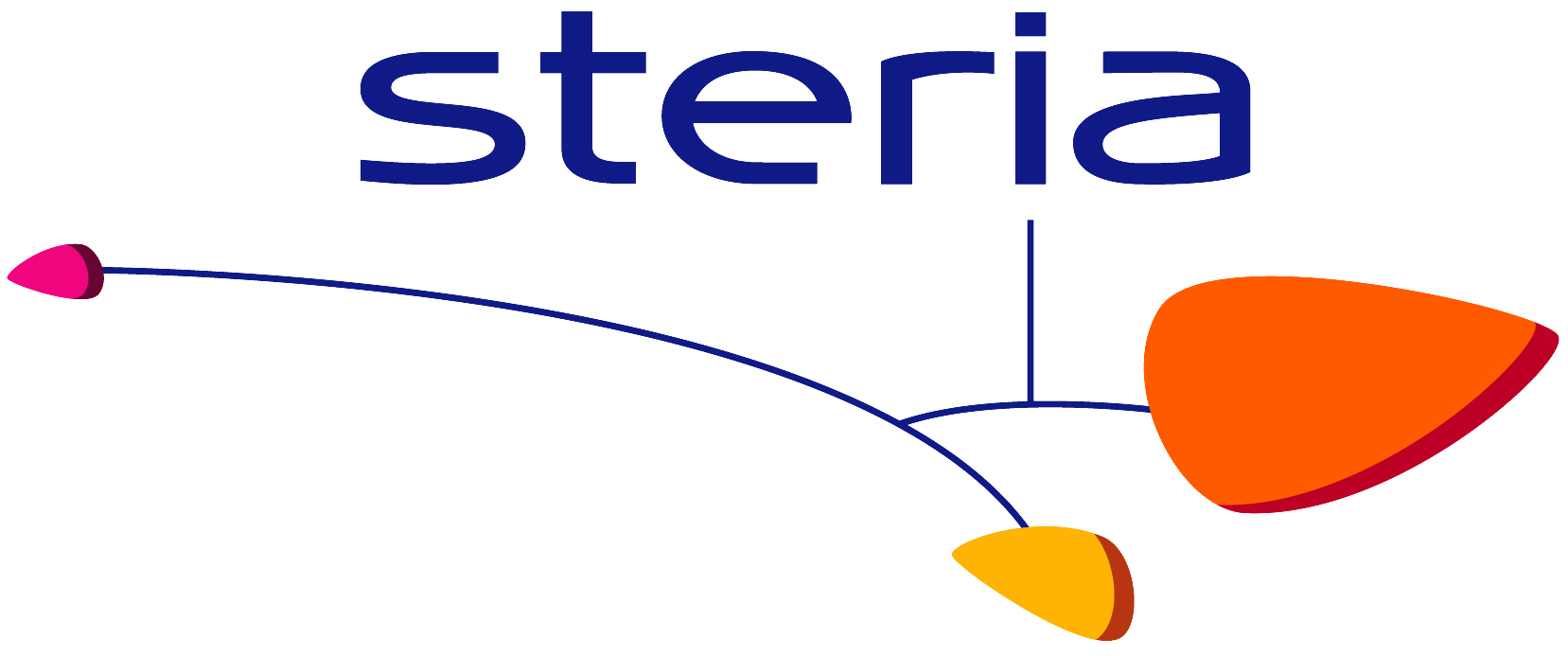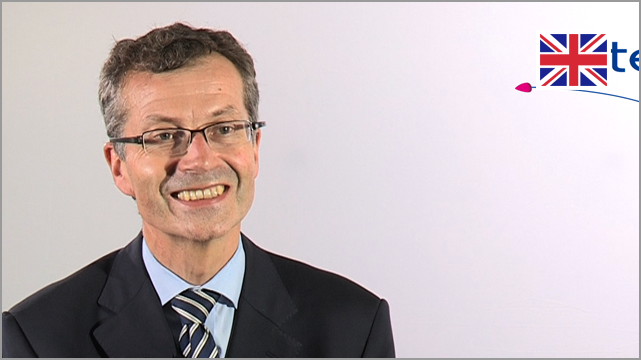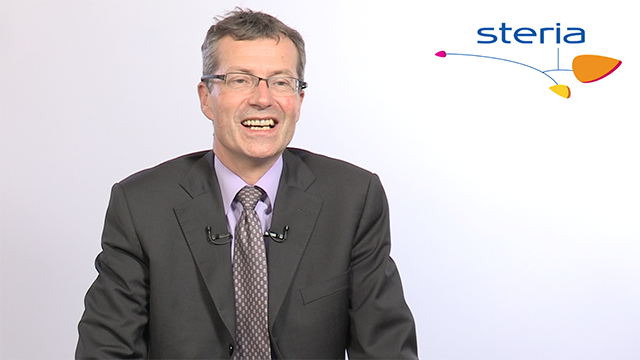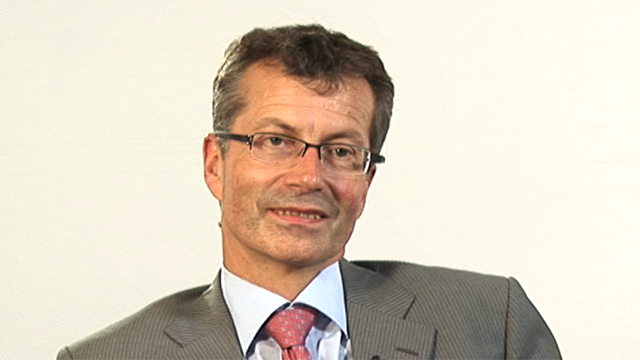EBM: Steria, one of Europe's leading IT Services companies, just reported earnings for the first-half of 2009. François Enaud, welcome. You're the CEO of Steria. What are your comments on the Group's first-half results?
François Enaud (FE): My comments are quite positive. In a very challenging environment throughout the first-half, we have delivered quite good results. First, regarding the revenue, the revenue has decreased only by 2%. And if you compare it to the market and our direct competitors, it's quite a good performance. Regarding the operating margin, it has been even better in terms of resistance, in the sense that we have only decreased the operating margin by 20 basis points. And finally, regarding the sales activity for the order entry, the situation at the end of the half is even better than last year. We have increased the order entry by 5% and the final book-to-bill ratio at the end of June is 1.12, which is quite promising for the coming period.
EBM: You consider that the Group resisted quite well during the first-half. In your opinion, what are the main explanations of this situation?
FE: The main explanation is the resilience of our model and this model is based on, first, a strong focus on dynamic markets. Our strategic markets are, first, public sector, which represents 40% of our total revenue and, secondly, utilities which represents an additional 20% of our revenue. And on these sectors the demand is definitely stable and far less affected by any downturn.
Secondly, we also have the benefit of our delivery model. Our delivery model -- the way we produce projects for clients -- is more and more industrial, and more and more distributed between different delivery centers to optimize the cost of production, based on offshore and near-shore. And definitely we can compensate any price pressure from the market with this way of delivering projects to our clients. Then, in the first-half, we have also definitely the benefit of our successful integration of Xansa, which contributes to bring €9 million additional synergies during this first-half of the year. And finally, we have been successful and rigorous in the way we managed the costs all along the period, in order to optimize in any country our spending, by globalizing especially our procurement, and in order to optimize and to gain benefit of scale and economies of scale for any source of spending.
EBM: What is the financial situation of the Group today?
FE: The financial situation is more and more healthy and sound. At the end of this first-half we will have reduced our debt by €100 million compared to what it was one year ago. And for the first time we have been positive in operating free cash flow in the first-half, when usually we consume cash in the first-half, only to generate cash in the second-half. And this cash flow performance leads to a very good ratio now regarding debt, limited to 39% of our equity and limited to 1.5 times our EBITDA. Definitely, with such ratios we can say that our covenants, and the risk of hitting covenants, are definitely behind us. And, as a result of this good situation and debt situation, we definitely have a very solid financial situation, globally speaking, because we have a gross cash position which exceeds €140 million. And in addition to that we have €240 million of facilities already negotiated with banks with good conditions which are not yet used. Definitely, in terms of liquidity, our situation is more than healthy.
EBM: Two years after the announcement of the Xansa acquisition in July 2007, what are your comments on the integration of Xansa?
FE: My comment is about the success of this integration, particularly and especially for the first phase which is now fully completed. This first phase was about delivering cost synergies. By merging two organizations together it consisted in making savings. When we announced this acquisition 2 years ago, our plan was to deliver €49 million of cost synergies at the end of 2009. It is exactly the figure we will deliver at the end of this year. In addition to that, we will spend less money than we thought in order to make these savings. We will spend €14 million less than the figure we had announced. And the second phase of the acquisition is now definitely engaged. This second phase is about delivering sales synergies by merging not just the organization but merging and combining our service offerings in order to increase our competitiveness and attractiveness to the market. And in addition to that, we also have in this second phase a strong ambition of deploying our industrial model, the integrated delivery model, inherited from Xansa, of mixing offshore and onshore resources all across Europe in all our geographies.
EBM: What is your update on the state of your business in your main geographical zones?
FE: Starting with France, we have had a good performance in France in the first-half. First, by reducing our overall costs by an amount of €10 million versus last year. Secondly, we have reduced, in France, our inter-contract ratio which was, in the beginning of the year, quite high due to the effect of the crisis and the decreasing demand from the market in the beginning of the year. And we also have a very good sales performance over the period, leading to a quite good activity in the second-quarter. Especially if you compare our activity with the market -- we are now again in line with the overall market. And we have been very satisfied in signing the biggest contract ever signed before by Steria France, which is a contract for a large telecom operator, SFR, for managing all their IT operations.
EBM: And what about your other regions?
FE: Starting with UK, UK where we have a very good performance, a double-digit profitability, in the UK we have increased the visibility of our business. Our order entries have increased by 14% versus last year. In Germany, which is the third largest country for Steria, the situation has been quite different because our profile is different in Germany. Our profile is much more about business consulting, which is a bit more affected by any downturn. And that's why our revenue has decreased by 7%, which is, to be fair, quite good compared to [competitors with] a similar profile on the market. And finally, for the other geographies, the situation has been overall quite good, and very good by increasing the revenue by 6%. But inside this cluster of countries the situation is quite contrasted between one, the Scandinavia area, where the growth has been impressive – of more than 15% -- and in Spain, where the situation is definitely difficult with a severe downturn in the overall economy and where the revenue has decreased by 11%.
EBM: What guidance can you give the market for the full year? Are you still comfortable with an estimated operating margin of 6.6% for 2009?
FE: For the rest of the year, I believe that the environment will remain challenging. And unfortunately, we cannot consider that the crisis is behind us. Even if we expect stabilization of the market, due to our good order intake at the end of the first-half, we cannot forget that we have embedded effects in terms of price and volume. That's why our guidance for the full year is much more about the stabilization of our performance compared to what we have delivered for the first-half. For the revenue, we do expect overall for the second-half an organic decrease by 2%, and for the operating margin, something very close to what we have delivered for the first-half, something around 6.9-7% operating margin rate.
EBM: Now that the acquisition of Xansa is behind you, are you considering new opportunities for external growth?
FE: Obviously, we are always attentive to market opportunities in order to strengthen our model and our growth capability. However, I don't consider that a large and transformational acquisition is realistic for the very short-term. I do consider that we have not reached all the potential of synergies we can expect from the last acquisition, the Xansa acquisition. Even if we have been very successful and we are close to delivering all the cost synergies we hoped for when we did announce the acquisition of Xansa, we now have to stay focused on what we can extract in terms of sales synergies and what we can leverage regarding the industrial model, by deploying it all across the geographies of Steria. That's why I do consider that our priority for the short-term is much more about leveraging our existing assets rather than looking too fast to any large, external acquisition.
EBM: And finally, for those employees who are listening to this interview today, is there any message in particular that you would like to address to them?
FE: Yes, of course. I definitely wish to thank everyone involved with our sales achievements, and particularly in this very challenging market and tough situation. By working together we have managed very significant, major wins, which are a very good demonstration of our tenacity and the effectiveness of our business model. Congratulations also to everybody in the company for the excellent performance on cash management. It's definitely a fantastic result -- consisting in decreasing our debt by €100 million in one year – which is obviously the result of the collective effort and contribution to improve our cash situation. Now, in the coming months I rely on you to maintain this pressure on cost management, on working together, on cross-selling our solution service offerings from one country to another, and obviously on fully deploying our industrial delivery model. Let's leverage all of our existing assets to see the Group come to a good organic growth performance.
EBM: Francois Enaud, CEO of Steria, thank you very much.
FE: You're welcome.

